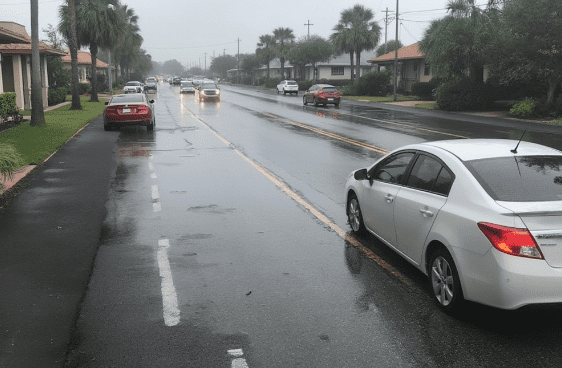On October 11, 2024, Hurricane “Milton” made landfall in Florida, bringing with it strong winds, heavy rainfall, and significant damage to coastal areas. This hurricane is the latest in a series of extreme weather events that have caused widespread disruption across the state, leaving thousands of residents without power and causing substantial infrastructure damage. As authorities mobilize to address the immediate aftermath, discussions around the connection between such storms and the global climate crisis have intensified.
The Immediate Impact of Hurricane Milton
Hurricane Milton hit Florida with Category 4 strength, characterized by winds exceeding 130 miles per hour and storm surges that inundated low-lying areas. Coastal cities, particularly in the southern regions of the state, bore the brunt of the damage, with homes and businesses experiencing severe flooding. Emergency services are working tirelessly to restore power, clear debris, and ensure the safety of those affected. Evacuations were ordered in several high-risk zones ahead of the storm, minimizing the loss of life, but the financial toll is expected to be significant.
The Climate Crisis and Hurricane Intensity
As with many recent hurricanes, “Milton” has raised questions about the role of climate change in intensifying such storms. Scientific research increasingly suggests that rising sea temperatures contribute to the formation of more powerful and destructive hurricanes. Warmer oceans provide more energy for storms, leading to stronger winds and greater rainfall. Florida, which is particularly vulnerable to hurricanes due to its geography, has been at the forefront of these discussions, with residents and policymakers alike concerned about the future as storms become more frequent and severe.
Environmental experts have pointed out that Hurricane Milton is part of a worrying trend of increasing storm intensity, fueled by climate change. The conversation now turns to what steps can be taken to mitigate these effects, from reducing greenhouse gas emissions to improving infrastructure to withstand more severe weather events.
Rebuilding and Future Preparedness
In the wake of Hurricane Milton, Florida faces the challenge of rebuilding damaged communities and ensuring future preparedness. State officials have already announced plans to strengthen coastal defenses and improve evacuation protocols in anticipation of future storms. Additionally, discussions are underway about investing in more resilient infrastructure that can better withstand the impacts of increasingly powerful hurricanes.
Federal and state authorities are coordinating disaster relief efforts, with financial aid and recovery teams being deployed to the hardest-hit areas. However, the long-term question remains: how can Florida and other hurricane-prone regions adapt to a world where storms like Milton become the new norm?
Conclusion
Hurricane Milton has once again highlighted the devastating impact of extreme weather events on vulnerable regions like Florida. As the storm’s immediate aftermath is addressed, the broader conversation about climate change and its role in exacerbating such events continues. The question of how to protect communities from increasingly severe storms is one that policymakers, scientists, and residents will need to confront as the climate crisis deepens.





